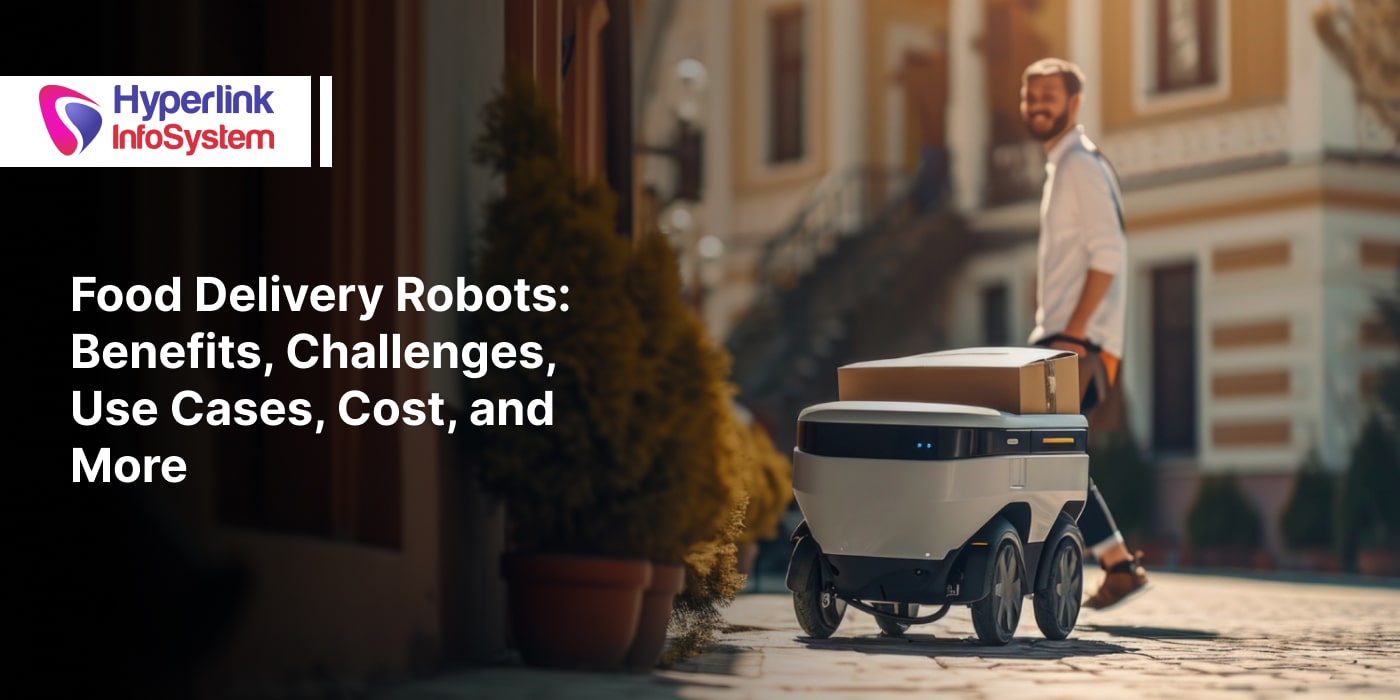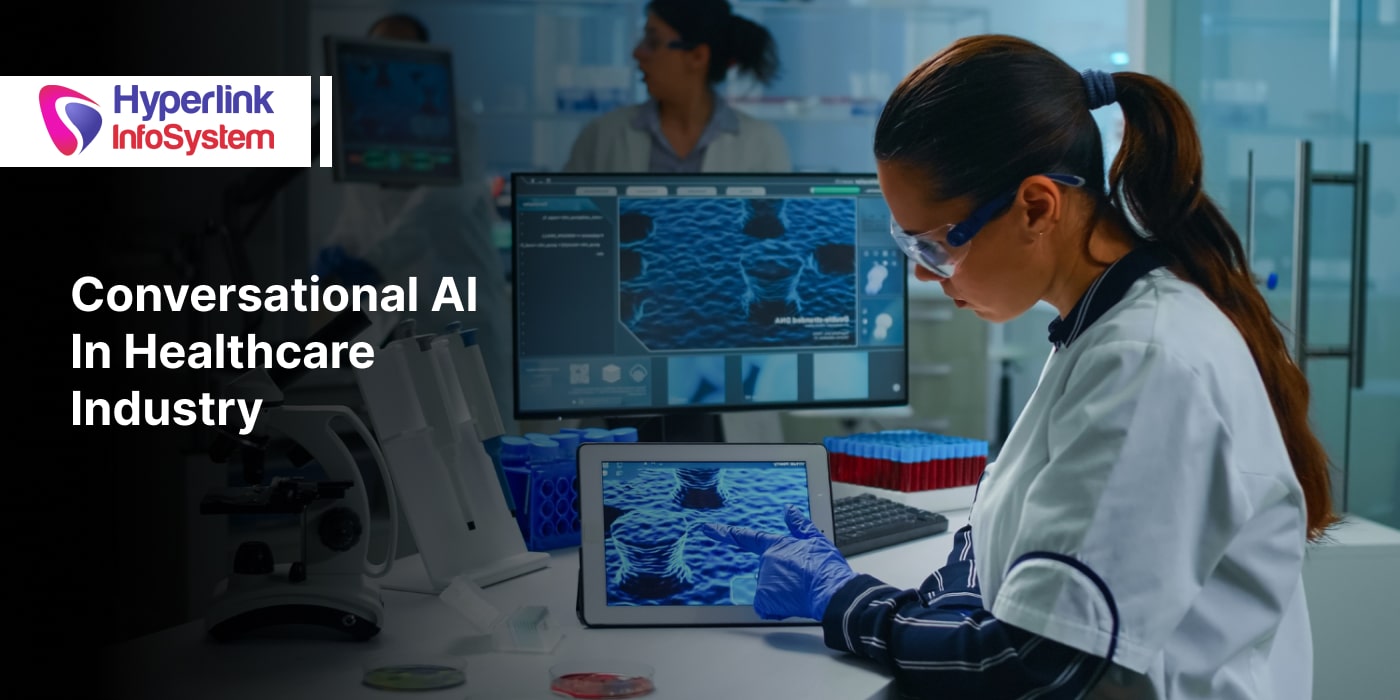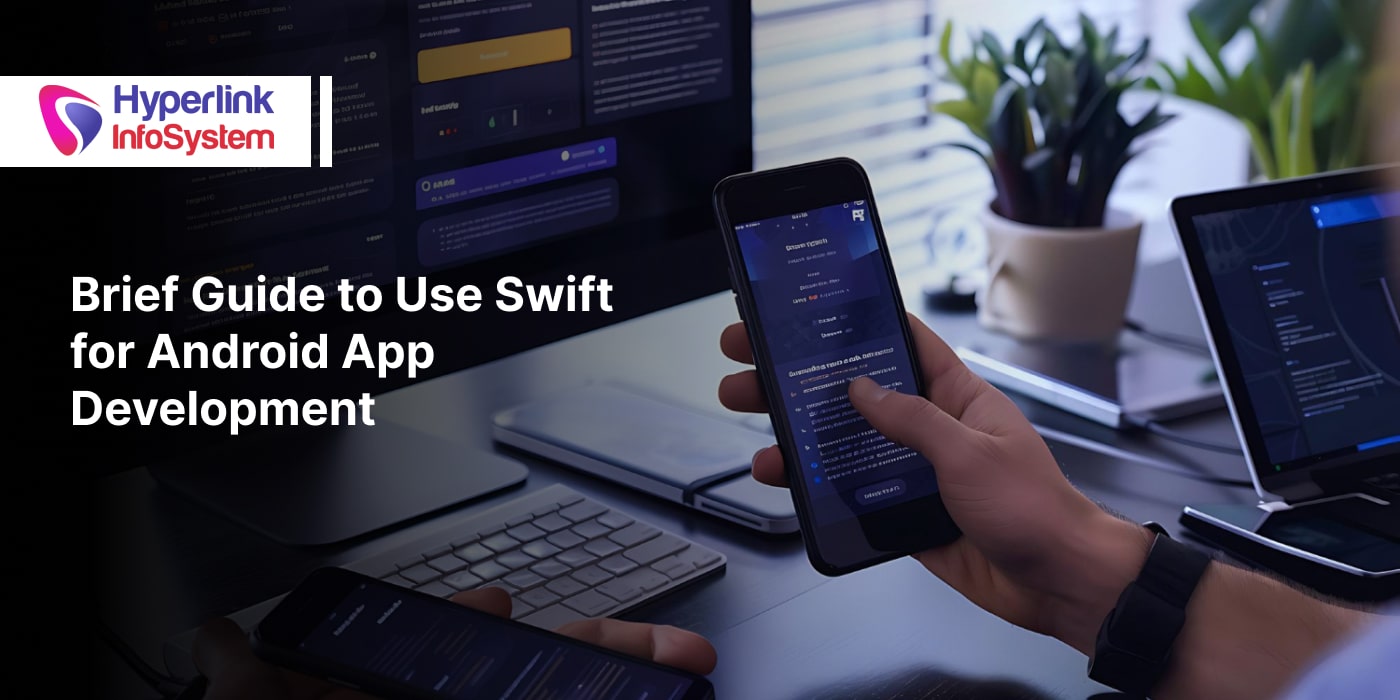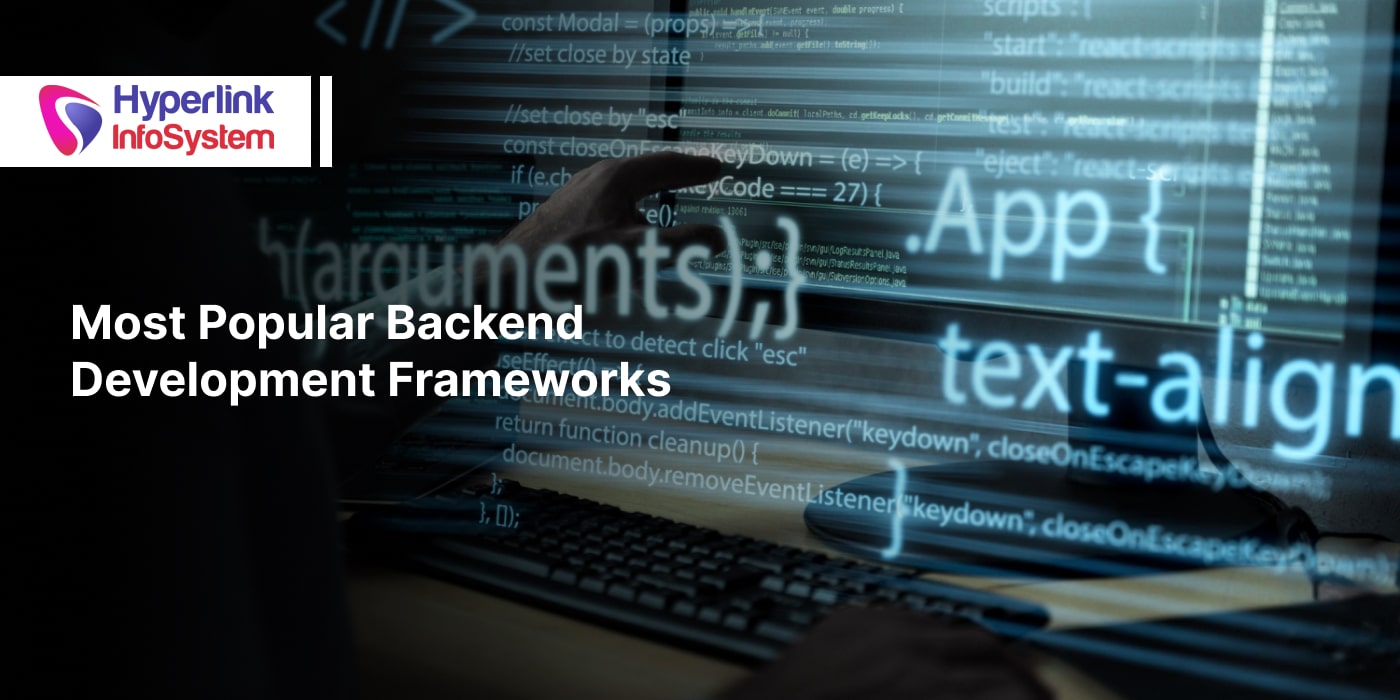Cloud-based POS vs Legacy POS System: Which One Is Best For My Restaurant?
Nov 2024
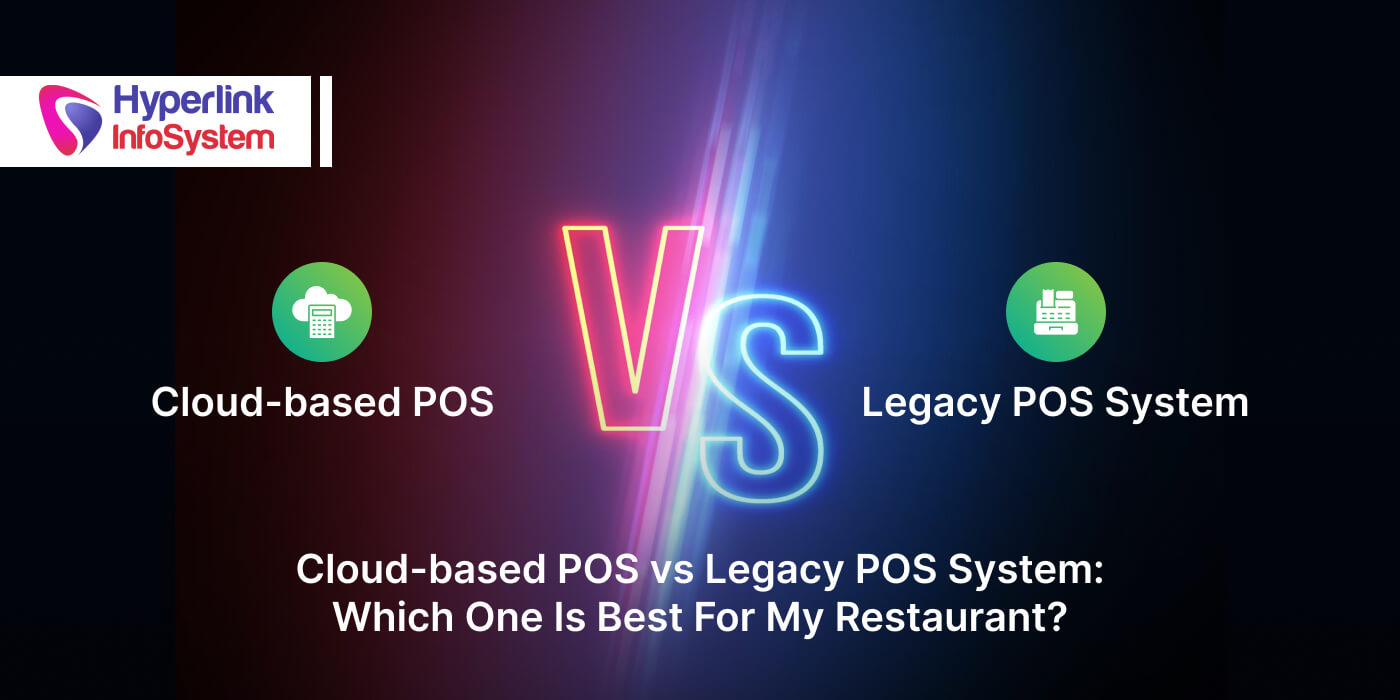
The point-of-sale(PoS) system offers the best way to maximize the operations of a restaurant and improve service delivery. It is important to understand the differences between cloud-based POS systems and legacy POS systems. Though cloud-based POS offers more functionalities and flexibility that include interaction with online cloud cooking platforms, among other things, legacy systems have long been the standard.
Let's compare cloud-based POS systems with the more traditional ones. The right restaurant POS system will increase efficiency and customer happiness, no matter how big or small your business is. Whether you plan to work with a software development company or plan to hire dedicated developers team on board for a specific solution, this article should be able to put you on the right track.
What are PoS systems?
Point of Sale (POS) systems are valuable assets for any organization that wishes to have control over their sales. A point-of-sale (POS) system enables employees to record orders from customers, process customer orders, and manage daily operations in a restaurant by streamlining the collection of payments. It serves as the central nexus for tracking inventory, managing sales, and integrations with other applications, such as accounting and CRM.
There are two major categories of contemporary restaurant point-of-sale systems: cloud-based POS and legacy POS systems. Whereas traditional POS systems seem to be hardware-based; they keep their data in-house and restrict access to a remote location, the online saving of data in cloud-based POS allows its access from anywhere.
Such a reliable point-of-sale system will streamline order processing and facilitate the analysis of sales trends. Furthermore, restaurants find it relatively easier to adapt to new trends in customer needs, such as online ordering and delivery services, since most POS systems integrate with restaurant app development services, including food delivery app development.
What is a cloud-based POS?
The cloud point-of-sale system, in which all the data, including inventory, sales records, and client information, can be stored on remote cloud servers. This means now restaurants can now access the POS systems in real-time from any device enabled through the Internet. This offers flexibility, automatic upgrading, and integration with other instruments, such as online cloud kitchen platforms, food delivery app development services, and customer relationship managers associated with cloud point-of-sale (POS) systems.
It is good in the sense that cloud-based POS systems provide lower upfront costs and remote management, all made easy with added scalability. Mostly, it is very ideal for different restaurants that expand or have outlets in different locations because it can help boost productivity and streamline processes.
If you are looking to customize your point-of-sale system in your restaurant, work with a software development company that will put in a cloud-based solution for you, and thus it will be kept current and adaptable for you. You can hire dedicated software developers who can help you construct unique features that might be on the requirements of your business.
What is a Legacy POS?
Legacy systems store data locally on a closed network and require onsite servers and equipment. Legacy point-of-sale systems often require onsite servers and equipment as data is stored locally on a closed network. Restaurants have used these systems for decades but also often they are static and less adaptable to remote management and interaction with the modern world, like using a smartphone or cloud service.
They have high maintenance costs, are less scalable, and provide less access to real-time data. Traditional POS systems do not integrate so well with newer technologies such as restaurant app development services or food delivery apps, and upgrades are mostly expensive and manual.
Any restaurant still using a traditional point-of-sale system would benefit by working with a software development company to discuss cloud-based options as it contemplates the switch to a more flexible option.
Also Read, Benefits of Custom Software Development in 2024
Cloud-based POS vs Legacy-based POS
The flexibility, ease of use, and long-term profitability of your restaurant's operation are crucial factors to consider when you have to choose between having a legacy point-of-sale system and a cloud-based one. So, for your assistance in finding the right restaurant POS system, compare these systems thoroughly as below mentioned.
1. Flexibility and accessibility
Cloud-based POS: This technology enables one to access and manage sales, inventory, and even customer data via any internet-enabled device. Perfect for multi-site businesses or proprietors with far-flung operations.
Legacy POS: Access is only in person since its data is stored on the servers. This reduces adaptability and complicates multi-location management.
2. Data Protection and Backup
Cloud-based POS: Data is automatically synchronized with the cloud and, owing to proper security measures, is less likely to be lost in case of failure of the hardware. Security measures like encryption and multi-factor authentication are often a normal feature of cloud systems.
Legacy POS: Because the data is stored locally, you must do manual backups to avoid loss of data. Sale data and much more vital information will be lost if some hardware in the system is damaged or fails.
3. Cost and Maintenance
Cloud-based POS: One advantage of cloud-based point-of-sale systems is that the front-end cost is relatively low since they do not require much hardware to be installed. Most subscription-based cloud-based point-of-sale systems eliminate the need for expensive maintenance since they are designed to update automatically.
Legacy POS: The legacy POS demands a huge upfront investment in hardware and installation. The cost of ownership can also be increased by the huge expense of manual updates of the system and upgrading.
4. Scalability
Cloud-based POS: They can grow to match the growth scale of businesses. A cloud-based POS may increase with your company without large-scale infrastructure upgrades, whether you hire more employees or expand across multiple locations.
Legacy POS: Not easily scaled. The system often goes hand in hand with an increase in servers and new hardware, which can prove very costly and time-intensive to handle.
5. Utilization of Contemporary Tools
Cloud-based POS: Connect easily with contemporary technologies, including CRM systems, restaurant application development services, food delivery application development, etc. Best usage of the online cloud kitchen platforms for restaurants aiming to take an edge forward with tech-driven solutions like this and give a floating operation a chance on board.
Legacy POS: Its integration option is almost negligible. Since most legacy systems are not designed to be easily integrated with the latest available cloud-based solutions, it is not easy to incorporate new features or services in most legacy systems.
6. Updates and User Experience
Cloud-Based POS: It is equipped with an interface that is easy to use and automatically updated so that business activities are not hassled. Updates and new features are deployed quite frequently for better functioning.
Legacy POS: Typically must be maintained manually, which is both expensive and time-consuming. Often, installing new features requires complicated installations, and to the end user, the interface may even appear to be aged.
Benefits of Having a POS System for Your Restaurant Business
A point-of-sale system makes order management, payment processing, and inventory tracking much easier. Employees will easily attend to orders, process payments, and make fewer mistakes through a centralized system. This efficiency results in better customer service, which raises customer satisfaction and encourages repeat business. Further, by preventing shortages or overordering, real-time sales and stock level tracking eventually save time and lower operating expenses.
It is also very important that the flexibility of modern point-of-sale technology lets restaurants connect to other key technologies like food delivery app development platforms and customer relationship management systems. This feature lets restaurants track client preferences, manage online and in-house orders, and implement loyalty programs. Gathering helpful consumer data will let one have an improved overall dining experience, boost the retention of clients, and tailor marketing campaigns.
Last but not least, cloud-based POS systems enable you to run your restaurant from any point because of access to inventory, schedules of staff, and sales data from remote locations. This high control level is a must for restaurants that own several locations or even have ambitions to open more places in different locations. Besides that, having the best development of software deal with the creation or customization of a POS system will surely bring you scalability and sustainable business benefits.
Challenges of Implementing a POS System for Your Restaurant
Probably the biggest barrier to rolling out a POS system in your business is the initial time and money investment. Based on whether you are deciding on a legacy system or a cloud-based point-of-sale system, it does take time and resources to purchase hardware, set up software, and train employees. Probably the most prohibitive cost of initial costs for small businesses or newly opened restaurants will be this if they opt for more advanced features such as food delivery app development or CRM integration.
Another consideration is to ensure that the system is easy to use for your employees. The latest point-of-sale systems are modernized to make things easier. Nonetheless, to help ensure that service discontinuities do not occur due to this process, your staff must be fully trained first. This might take a long time, especially in busy environments where introducing new technology will, for a time, cause slowness in operation. Moreover, business efficiency and customer experience would likely suffer from downtime or technical breakdowns, especially with legacy systems.
Also, data security is an important issue. Critical consumer and payment information must be protected from internet dangers when using a cloud-based point-of-sale system. Collaboration with a leading software development company can minimize these risks with a safe solution and guaranteed periodic upgrades. Still, regular maintenance and observation are to ensure that your POS system continues to function properly and securely.
Conclusion: What’s Best for Your Restaurant?
A modern restaurant should implement a cloud point of sale if it wants to run an online platform or integrate meal delivery application development. This helps you remain competitive in today's tech-driven restaurant business environment with flexibility, scalability, and integration into modern tools.
Still, you might get by with an old-school POS system if you want something very traditional, you don't need remote access, and your capability requirements aren't too elaborate. Regardless of the system you end up going with, you can take steps to get more out of your restaurants with the help of a dedicated developer or a software development company that can make your POS solution work for you.
Hyperlink InfoSystem deals in the provision of POS systems and specializes in restaurant app development services. Our professional staff will help you to update your existing system or implement an online point-of-sale system. Hire dedicated developers for the advancement of your restaurant business.
Frequently Asked Questions
A cloud-based POS will offer access from anywhere, with the possibility of remote updates, as opposed to a legacy point-of-sale system, which saves data locally on-site and demands hardware and manual updates.
A legacy-based POS system is a traditional point-of-sale system that usually lacks the flexibility of cloud-based systems and will rely on hardware and on-site servers to fulfill transactions and manage data.
Indeed, a point-of-sale system is essential in restaurant management because it controls sales, tracks inventory, speeds up operations, and handles customer service.
POS systems are used more often by restaurants when taking orders. These systems are frequently attached to tablets or smartphones and sometimes integrated with online ordering platforms so that orders are managed smoothly.
Latest Blogs

Is BlockChain Technology Worth The H ...
Unfolds The Revolutionary & Versatility Of Blockchain Technology ...


IoT Technology - A Future In Making ...
Everything You Need To Know About IoT Technology ...

Feel Free to Contact Us!
We would be happy to hear from you, please fill in the form below or mail us your requirements on info@hyperlinkinfosystem.com
Hyperlink InfoSystem Bring Transformation For Global Businesses
Starting from listening to your business problems to delivering accurate solutions; we make sure to follow industry-specific standards and combine them with our technical knowledge, development expertise, and extensive research.
4500+
Apps Developed
1200+
Developers
2200+
Websites Designed
140+
Games Developed
120+
AI & IoT Solutions
2700+
Happy Clients
120+
Salesforce Solutions

40+
Data Science












